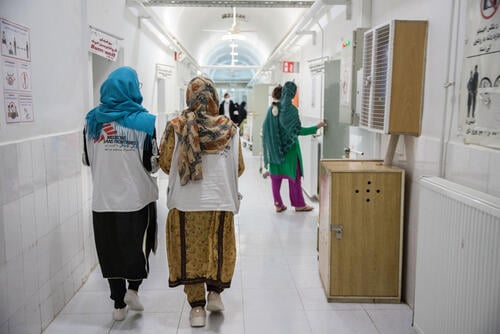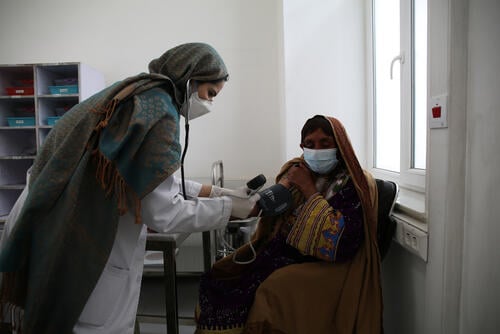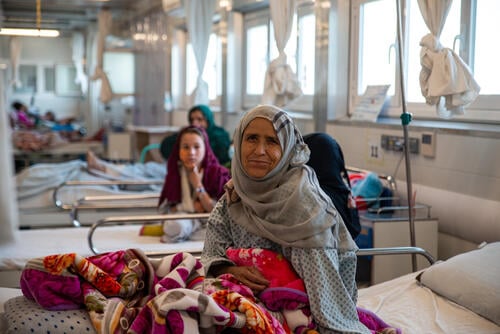The future of female patients and health workers in Afghanistan is being threatened by the recent decree issued by the Ministry of Economy prohibiting women from working for non-governmental organisations (NGOs). Though health workers, including MSF staff, are currently exempted from the ban, there is no formal assurance that they will be able to continue to work unhindered.
In a context where there is a high level of dependency on humanitarian and non-governmental support, the participation of female NGO workers in providing healthcare services is an absolute necessity. Women make up more than 51 per cent of Médecins Sans Frontières' (MSF) medical staff in Afghanistan.
After MSF condemned the Islamic Emirate’s decision in a press release on 29 December 2022, some of our female employees have voiced their fears for the future and their frustration.
“In the hospital, we have lots of patients who are women,” says Farzaneh* an MSF Afghan female employee. “When they fall sick or need to deliver a child, they must have a place to go. If the Taliban prevents female staff from working, no one will be able to take care of them.”
“A woman’s health affects the health of her whole family: if there is no access to prenatal and postnatal services, children’s lives will be put at risk as well. This ban will not affect just women. It will affect the country,” adds Farzaneh.
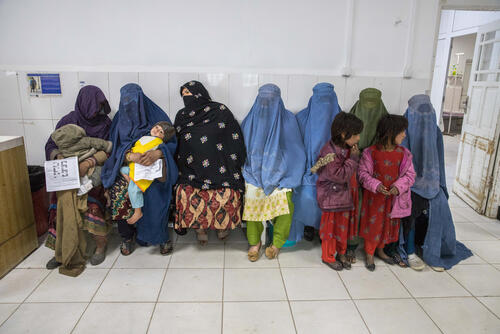
“If this ban is extended to health workers, then things will be very difficult for female patients as well. Many families will not accept for women to be treated by men. All of this can harm Afghan women in several ways, including by an increase in maternal and infant mortality,” says another MSF staff member.
In addition to exacerbating the existing issues of access to humanitarian assistance, the Islamic Emirate’s ban compounds a dire social and economic situation in a country crippled by unemployment and sanctions imposed by foreign governments; particularly by the US administration, which still controls many of the funds of the Afghan Central Bank.
“There are seven people in my family that I provide for. If I become unemployed, no one will be able to support the family”, explains Benesh, another MSF female worker from Afghanistan.
“Many women in Afghanistan are the breadwinners for their families because the men are unable to work, have fled the country or have died. Every day I think a lot about what I would do if I were not allowed to work anymore,” adds Benesh.
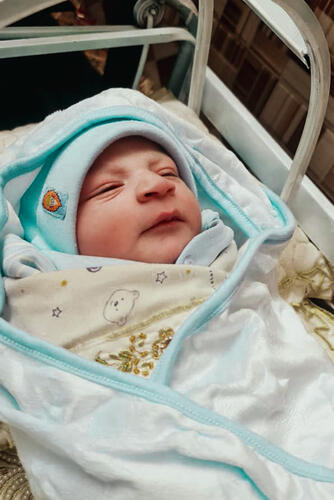
Women and children are among the most vulnerable groups in Afghanistan, and the concerns raised by the MSF female staff echo those of other Afghan women.
“The recent ban has already caused psychological problems for many women and their families. We fear that every day at work can be our last. Getting to offices seems more and more difficult,” says an Afghan woman.
“Already I see that the people at checkpoints look for any excuse to prevent women from moving freely. For example, my sister was sick recently and when she was travelling to our hospital for a check-up, they did not allow her to go because she didn’t have a mahram (escort). She stood there for about 50 minutes, outside in the cold. Then my brother came, and they allowed them to leave. It is difficult to know that we are something less.”
“I would also like to say one thing to people who might be reading this: please do not forget the women in Afghanistan”, says Soraya, another Afghan female colleague. “No society can do well without both women and men. We all need to be involved in our communities to make things better.”
*The names of all women have been changed to protect their identity.




